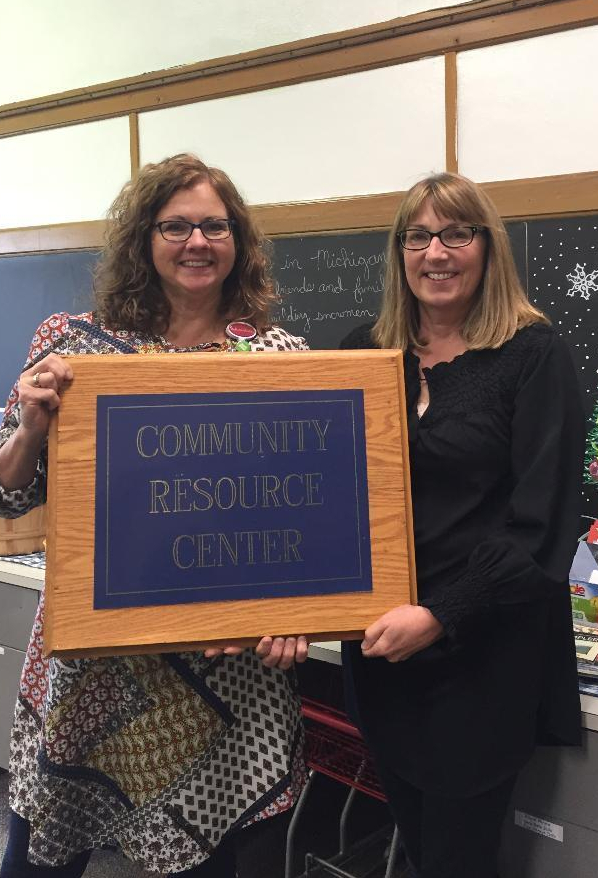CHELSEA — “Ashley” had been struggling with depression for a long time. Many people had suggested she seek help. Ashley had collected brochures, business cards and lots of phone numbers. She did not reach out to anyone.
One day, Ashley’s primary care physician referred her to Kathy Walz, LMSW, behavioral health services navigator at St. Joseph Mercy Chelsea. True to form, Ashley did not call. But three days later, Walz called Ashley. Ashley met with Walz to talk about her options; they talked about how counseling could help and what it would be like for her. Ashley went on to receive the mental health care she needed. Months later, Walz asked Ashley why she finally decided to get care. “Because you called me,” she replied.
A behavioral health navigator is a licensed behavioral health clinician who helps connect people with services that are specific to their needs. Unlike a brochure or someone on the other end of a phone line, a navigator offers a “warm hand-off” for care, specific to the person’s needs and circumstances. Often times the navigator can work with someone to move past the issues that are keeping them from getting the care they need. The navigator’s services are free.
“St. Joseph Mercy Chelsea created a behavioral health services navigator position because we knew people were having a hard time accessing mental health resources and understanding what services were available. We developed the navigator to be embedded in the community. The navigator’s role is to connect people to what they need, based on their specific circumstances. To my knowledge, this is a unique position – especially for people who are not our patients,” said Reiley Curran, manager of community health improvement at St. Joseph Mercy Chelsea.
The navigator collaborates with schools, primary care providers, and community-based organizations serving the poor. The position was created to support people who are struggling with mental health issues. This program is especially important for people who have a low income and live in rural areas. Currently, Walz has more than 50 referral sources she can choose from when selecting the appropriate route for someone, including psychiatrists, support groups, therapists, psychiatric RNs and more.
“In our rural area, there were no counselors available for people with low incomes. It is nice to have Kathy available, at our center, so we can make appointments for our clients to meet with her,” said Laura Seyfried, director of the Manchester Community Resource Center.
The Manchester Community Resource Center is one of many referring partner agencies who connect people with the navigator, Walz. People in need can be referred to Walz by a primary care physician, a community-based organization, a church, a school, a family member; anyone who recognizes a need. The service Walz is able to provide is warm, kind and personal; it is non-traditional. Walz accommodates the person in need by meeting them in a coffee shop, a park, a library, one of her multiple community-based offices – any place that is easily accessible and safe. Walz is mobile. She is able to use offices in Chelsea and Dexter, a private space in a Stockbridge school, a little spot above a resale shop in Grass Lake and a private area in Manchester.
Unlike traditional programs, Walz creates her services around the very specific needs she sees. “Each community can use me, as needed,” Walz said. “For example, we recognized that seniors were feeling isolated. So, we created a group just for them to get together. We also saw that families of people struggling with mental illness needed support too, so we partnered with the National Alliance on Mental illness of Washtenaw County to offer the Family to Family education series and a support group for family members. The most important thing is for me to listen to what the community needs, and then give that service to them.”
“Having a navigator has helped because it brought counseling to our community in a non-threatening way. It allowed our agency to serve as a bridge for our long-time clients to get introduced to counseling in a safe space. It has opened doors for people who felt there wasn’t any help for them in our community,” said Seyfried. Prior to having the navigator, Seyfried was only able to direct people back to their primary care physician for help.
On average, 80% of the people who met with the navigator went on to seek additional care. The model of the behavioral health services navigator is currently being shared with other hospitals within Saint Joseph Mercy Health System to consider adopting. “The success of the navigator is based on the collaboration of members in the clinical health community,” said Curran.




